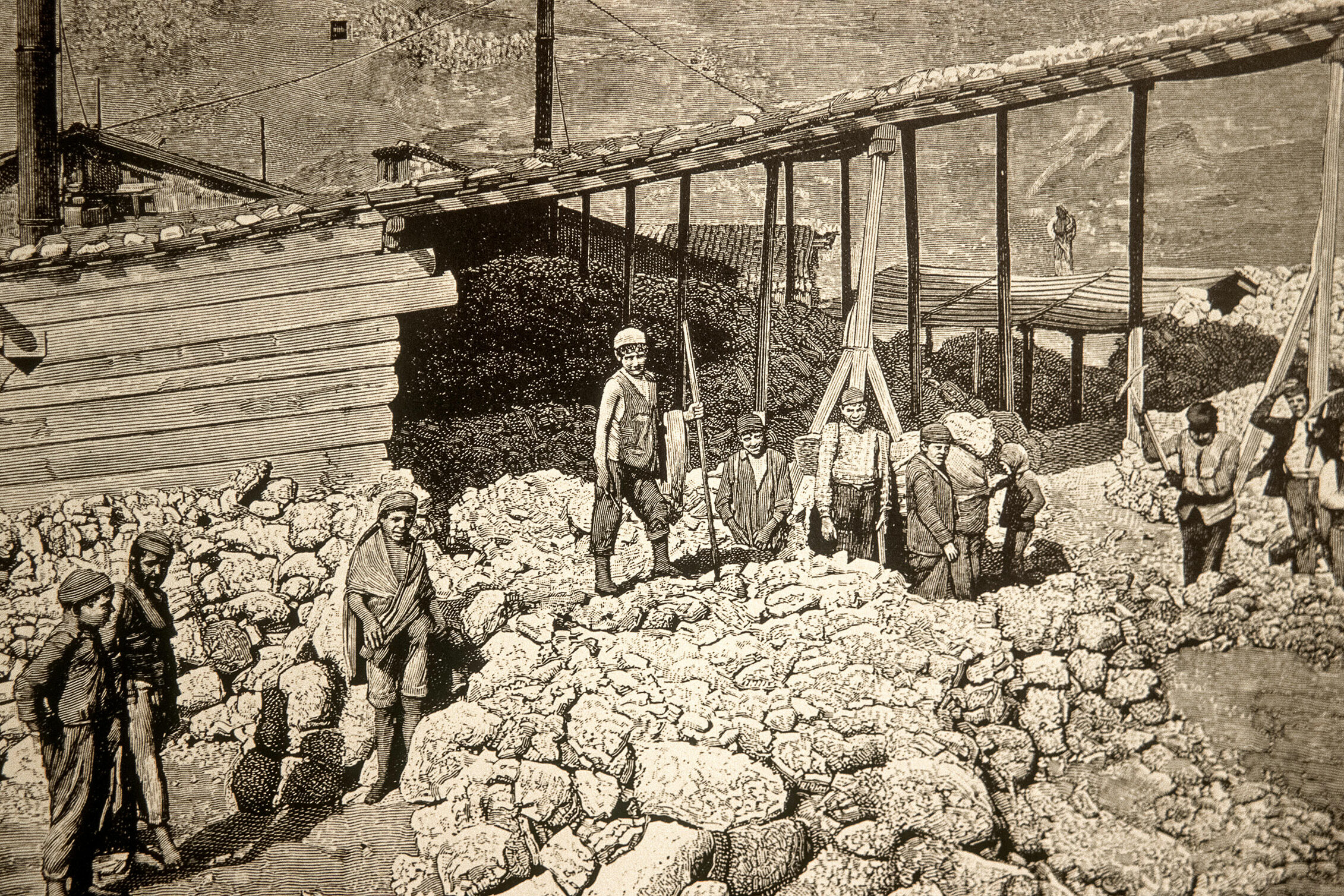Dear Readers,
An August “abbondanza” of admiration for those arrivals who reached our shores in the early 1900’s…
***
America, where “noses fun and feet smell”, is a land loaded with linguistic lumps in the road for new arrivals trying to learn English.
Jokes, with themes of linguistic foibles, and misunderstanding were popular among the old “paesani” who easily identified with the linguistically twisted punchline. An old favorite was the one about the conductor announcing it was “eleven o’clock”, just as the train stopped and most passengers got off. One passenger did not want to get off the train because he did not recognize the station as his stop, however, he was finally persuaded to disembark, when a helpful “paesano” said to him in Italian, you better get off because I heard the conductor say “leven e track” (dialect for they are removing the tracks). Later, I heard jokes about the perils of “paesani” who incurred the wrath of waitresses, when in broken English they ordered a piece of toast or requested a missing fork, but those attempts at humor were concocted by Italian American comics and not by early immigrants whose humor reflected a more innocent time.
***
Vincenzo Ancona (1915-2000), the beloved Sicilian-born poet (Castellamare del Golfo, Trapani) who immigrated to the United States in 1956 with his wife Virginia and four children and settled near “parenti e paesani in Bruccolino”, first worked in a broom factory where he sewed brooms. It was a period that inspired some of Vincenzo’s saddest and funniest poems on the absurdities of the English language and an immigrant’s encounter with English in America, as per this abridged version of Malidittu la lingua, Damned Language:
If I did not learn English soon, I’ll be ruined.
Damn this language I don’t know how to speak!
So much embarrassment have I endured,
not mentioning what else may be in store.
In my own language I’m a Cicero,
but I feel like I am speaking to the wall
when I speak English; this accursed tongue.
To tell the truth, the pay was rather low
for binding brooms in front of a machine
But even though I earned a meager wage
I felt as if my mother were a queen.
Accustomed as I was to such poor pay,
I thought that here I’d won the lottery,
but one day my poor back was wrenched with pain
And as my injury occurred at work,
the doctor filled insurance claims for me,
I told him everything from ‘a’ to ‘z’,
saying exactly how I had been injured.
But as his father was Italian-born,
he understood precisely what I said.
The doctor then proceeded to apply
some tape and neatly bound my injury.
The man began to ask me the first question,
believing that I understood him well.
I shook my head to one side, and the other,
to show I did not understand a word.
So they called in a knuckle-headed mug,
who didn’t know if he was still alive.
As an interpreter he was perverse;
instead of helping me he made things worse!
I stopped dumbfounded with my mouth wide open.
He turned toward me and started to repeat:
“They want to know your measurements in feet”.
What kind of question is he asking me?
Do I look like I have four feet like you,
you dumb jackass, son of a prioress?
That’s what I nearly said, but I refrained.
Meanwhile my blood was boiling in my veins.
“Better still!” , I thought. ‘It seems he wants to know how long my feet are, perhaps they want to give me a new pair of shoes?!’
But why should they be bothered with such things?’
At any rate, it wouldn’t be so bad
to measure them and get the size right first.
So to be sure the shoes wouldn’t be too tight,
I said forty-two would do all right.
“Forty-two feet? How could that ever be?”
that dumb Italian bastard answered me.
“You’re talking, but you don’t know what you’re saying!”
“I don’t know what I’m saying, you jackass!
With the dumb questions that you keep asking me.
I cannot understand my own Sicilian.
If I’m not wrong, you asked me just before
how big my feet were or what size I wore.”
And I thank God that a foreman came
who understood my words and knew my name.
He said,”You two are speaking different languages.
My friend, let me explain the mystery:
that man was asking you about your height,
and not about the size of shoes you wear.
This is the way they do things over here;
they use the foot to measure. Is that clear?”
Isn’t the meter good geometry?
Americans create obscurity when they insist on measuring with their feet…
***
Vincenzo Ancona’s poems are printed in Sicilian with English translation. I truly enjoyed Vincenzo Ancona’s poems because they are easy to understand, unlike some poetry with subtle nuances and symbolism that leave me with “I don’t get it”.
Funny or sad, Ancona’s poems are like mini mental paintings created with easy to understand words. To order Vincenzo Ancona’s “Damned Language and other Poems” in the bilingual Sicilian English edition post paid with 2 CD’s included, mail a $20 check, payable to Legas Publishing, PO Box 149, Mineola, NY 11501. Legas and Arba Sicula, a non-profit cultural organization that promotes the positive image of Sicily and Sicilian contributions to Western civilization, have jointly published several new books of particular interest to those with roots in the Italian island of Sicily. For more information, contact the president of Arba Sicula: Prof. Gaetano Cipolla (Modern Foreign Languages and Classical Studies), PO Box 149, Mineola, New York 11501 or .
***
Vincenzo Ancona’s Malidittu la lingua/Damned Language, recently reprinted in a new format and with two accompanying CD’s or one DVD of the poet reciting his work in Sicilian. Ancona’s book is certainly well known to the members of Arba Sicula, especially those who live in the New York area. Ancona was an institution in the Castellamare del Golfo community and still is remembered with affection and admiration. His book had been out of print for a number of years and it was reprinted in a more elegant edition at the request of many people. Legas, PO Box 149, Mineola, NY 11501.
***
More Legas titles of interest:
G. Summerfield, Remembering Sicily: Short Stories and Poems, $15
G. Pilato, Sicilian Women (interviews with 12 Sicilian women) 90 pp, $13
G. Quatriglio, A Thousand Years in Sicily, 228 pp. 3rd edition, $16
E. Carollo, America! America! (Italian/ English), $12
H. Barbera, Medieval Sicily: the First Absolute State, 152 pp, $12
***
Adding to the English language learner’s confusion are expressions and idioms, like fly-by-night, fly off the handle, fly in the ointment or fly by the seat of your pants, as in “I had to entertain visitors from Italy. I didn’t know their language, so I just flew by the seat of my pants”.
Meaning: to do something by instinct and feel without any earlier experience or instructions.
Origin: this phrase was popular among members of the U.S. Army Air Corps in the 1930s. Often, there were few or no instruments on the planes and sometimes the instruments didn’t work. So a pilot had to sit tight (on the seat of his pants) and fly an airplane by instinct. Today if you’re doing any kind of project and there are no instructions, you may have to “fly by the seat of your pants” (you just go by intuition, natural or common sense). Italian Americans born in the U.S.A. are lucky they did not have to work hard to learn how to speak English.
***





























